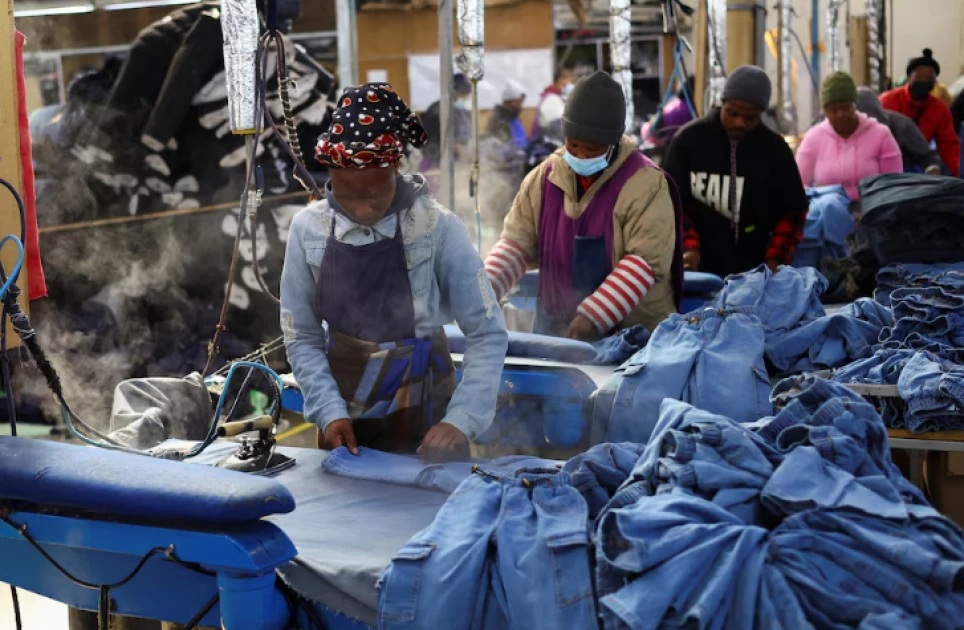Lesotho’s textile sector, a backbone of its economy, continues to grapple with the fallout from months of U.S. tariff uncertainty, despite a recent decision by former President Donald Trump to reduce the tariff from a threatened 50% to 15%.
The reprieve, though welcome, has come too late for many industry players who have already experienced major disruptions. Lesotho, a small, landlocked African nation with a GDP just over $2 billion, exports garments to the U.S. for major brands like Levi’s and Walmart under the Africa Growth and Opportunity Act (AGOA), which provides duty-free access for qualifying African nations.
Teboho Kobeli, founder of Afri-Expo Textiles in Maseru, highlighted the devastating impact of the April tariff threat. His company lost $1 million in annual revenue and was forced to lay off 200 employees 40% of his workforce as U.S. orders vanished.
“We were on the verge of building our American market,” said Kobeli. “That is a lot lost.”
Lesotho’s Trade Minister Mokhethi Shelile emphasized the broader impact, noting that around 12,000 jobs were immediately at risk. The country also faces stiff competition from other African textile exporters like Kenya and Eswatini, which received a lower 10% tariff rate.
The textile and apparel sector is Lesotho’s largest private employer, accounting for roughly 90% of its manufacturing exports and supporting approximately 40,000 jobs. For many, including former Leo Garments worker Matsoso Lepau, the tariff chaos has meant personal financial crisis.
“I have a big problem because the money that I was making is not there anymore,” said Lepau, who lost his $167-a-month job in April. “Now that Mr. Trump has lowered the tariffs, I am still hoping that we will get our jobs back.”
While the new 15% tariff rate provides a glimmer of hope, business leaders like Kobeli remain cautious. “Now with the 15%, we are starting to talk,” he said, adding that the uncertainty had frozen U.S. buyer confidence globally.
The road to recovery may have begun, but the damage to Lesotho’s vital textile industry will take time to repair.

